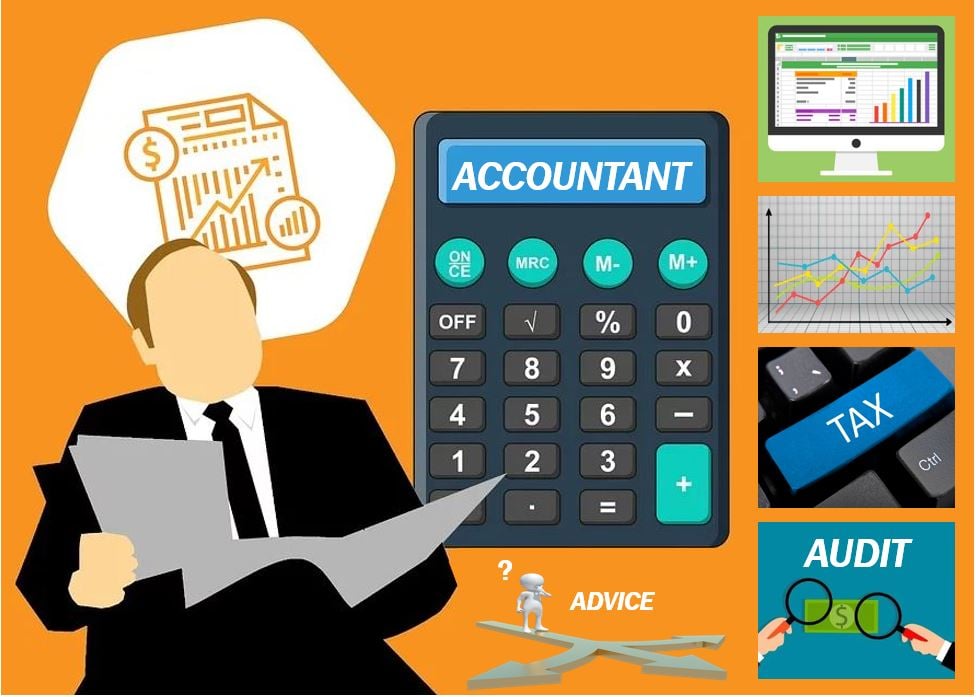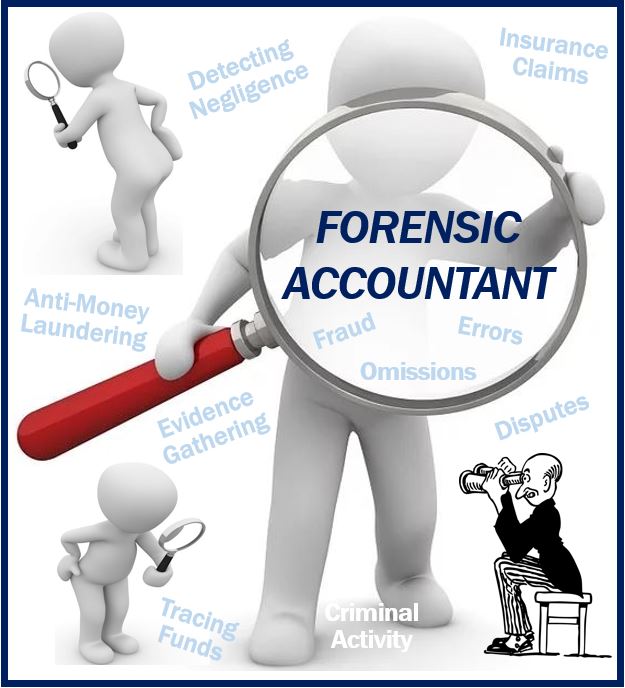What is an accountant? Definition and examples
An accountant is a qualified person who prepares, audits, and finalizes the accounts of companies, individuals, and other entities. They prepare companies’ annual reports as well as financial statements. Accountants also advise on investments, business strategies, and tax laws. Academically, an accountant is much more qualified than a bookkeeper.
 No medium or large business can function and compete effectively in the marketplace without an accountant or a team of them. They also play an important role in most small companies. They record and monitor a business’ or organizations’ flow of money.
No medium or large business can function and compete effectively in the marketplace without an accountant or a team of them. They also play an important role in most small companies. They record and monitor a business’ or organizations’ flow of money.
Accountants ensure the accuracy of every financial transaction. They also need to make sure that all transactions are legal and adhere to their country’s laws.
Cambridge Dictionary defines an accountant as “someone who keeps or examines the records of money received, paid, and owed by a company or person“.
Accountants and their functions
An accountant describes the financial health of an individual, company, or organization by using accounting data and financial statements, which they prepare. They are experts in tax law, math, business finance, and personal finance. They are the people you need to talk to if you want to determine how profitable your company is.
CareerExplorer.com says the following about what they do:
“They analyze profits and losses, providing information that investors and business owners need in order to evaluate how a company is doing over a period of time. This information forms the basis of a company’s report and legal filing reports.”
They are the financial backbone of a commercial enterprise. Accountants help individuals, businesses, and other organizations define their goals and objectives. Many of them also help their clients or employers achieve them.
Goals and objectives
Your goal is where you expect your company to be at a certain date in the future, such as two, three, or four years from now. Your objective is how you plan to get there. When you travel, for example, your destination is your goal, while your objective is your route and mode of transport, i.e., air, car, ship, or train.
Types of accountants
There are many different types of accountants today. Let’s have a look at some of them.
CPA (Certified Public Accountant) or Chartered Accountant
A CPA in the United States is an upper-level accountant, i.e., the most highly qualified. A CPA-equivalent in the United Kingdom, Ireland, and many Commonwealth nations is a Chartered Accountant.
Although some of their work involves the nitty-gritty of accounting, they function more as advisers.
Auditors
Auditors examine financial statements, accounting systems, and other financial and fiscal records. Informally, we say they ‘check the books‘ to make sure everything is in order. They also point out what needs to improve and how.
Rasmussen.edu says the following about auditors:
“These accounting professionals are tasked with examining financial statements, inspecting account books and accounting systems, organizing and maintaining fiscal records and assessing financial operations to provide recommendations for improvement. Some auditors specialize in a particular area or industry.”
Forensic accountants
 In the world of accounting, these professionals are the detectives. They gather and analyze financial records to determine whether they adhere to local and national laws and standards. When the police or a supervisory authority suspects fraud, they may send in a team of forensic accountants.
In the world of accounting, these professionals are the detectives. They gather and analyze financial records to determine whether they adhere to local and national laws and standards. When the police or a supervisory authority suspects fraud, they may send in a team of forensic accountants.
Management accountants
Management accountants focus on how companies are and should be run, that is, from a financial and management viewpoint. They interpret financial data to help the directors make corporate decisions.
Their roles include a combination of management, finance, and accounting. Their aim is to help companies thrive.
Other types
There are also Cost, Government, Investment, Project, Fixed Asset, Tax, and Staff Accountants. In fact, across the world, there are literally hundreds of different job titles and qualifications for professionals who specialize in accounting.
Accounting
In a Market Business News article that defines accounting, I wrote:
“Accounting is the work or process of keeping financial records. It is the systematic recording, reporting, and analysis of the financial activity (transactions) of a person, business, or organization. In business, it allows companies to analyze their financial performance.”
“Additionally, accounting allows businesses to examine their results regarding profits, losses, productivity, sales trends, costs, etc.”
Accountancy vs. accounting
These two terms are often used interchangeably. However, their meanings are not the same.
Accountancy
Accountancy is the entire field or discipline. It includes bookkeeping, auditing, and accounting.
Accounting
Accounting, along with auditing and bookkeeping, are the three principles that make up accountancy.

